Le Conversazioni, Writers Discuss Literature and Culture in Capri
“Conversation is a form of interactive, spontaneous communication between two or more people who are following rules of etiquette,” Wikipedia explains, while the Merriam-Webster Dictionary defines it as an “oral exchange of sentiments, observations, opinions, or ideas.” Correct me if I'm wrong but I believe that any aspiring writer desires to have a conversation with his/her favorite author, that writer who planted in him/her that wish to put words on that empty computer screen and tell a story, of any kind.
Le Conversazioni, scrittori a confronto (Conversations between Writers) fulfills that desire. Created by writer and professor Antonio Monda and film festival organizer Davide Azzolini, this is a literary festival that every summer, since 2007, brings together international writers, journalists and intellectuals on the Isle of Capri. In the last few years some of today’s great writers have come together to discuss engaging and challenging topics that are chosen for each year: identity, the relationship between the word and the image, memory, deadly sins, human rights and eros.
The theme to be discussed by Philip Gourevitch, Pierluigi Battista, Lila Azam Zanganeh, Paolo Mieli, Larissa Macfarquhar, Diego De Silva, Stefan Merril Block, Gaetano Cappelli, Wole Soyinka, Federico Rampini, Jamaica Kincaid and Leonardo Colombati, guests at the Piazzetta Tragara in Capri, in 2012 is Politically Correct (PC) and it was introduced by Antonio Monda at Casa Italiana Zerilli Marimò.
We quoted Wikipedia and a well known dictionary at the beginning of this article, but we are
quoting the Urban Dictionary to define political correctness, “Censorship, where people try to stop you from saying what you want. If we keep doing this the world will be boring.” The choice of this explanation was driven by the desire of not being politically correct in explaining its meaning.
“There is wide agreement that the term 'political correctness' originated already in 1793 when
a U.S. Supreme Court justice wrote in an opinion statement, referring to the case Chisholm
v. Georgia: 'The states, rather than the People, for whose sakes the States exist, are frequently the objects which attract and arrest our principal attention....Sentiments and expressions of this inaccurate kind prevail in our common, even in our convivial, language. Is a toast asked? 'The United States,' instead of the 'People of the United States,' is the toast given. This is not politically correct.'” Monda said in a statement during his presentation at Casa Italiana. In this formulation the words were used to describe people who altered their manners and beliefs to fit the prevailing political movements.
Through the centuries politically correct has worn different hats. It “described the self-righteous, non-smoking, ecologically sensitive, vegetarian, feminist, non-racist, multicultural, Birkenstock-wearing, anti-capitalist beneficiaries of capitalism--faculty as well as students--who paraded their outworn 1960s radicalism in the classroom and in their social life. (Kimball 2003)”
In its present form, PC emerged on American campuses during the 80s and has begun
to penetrate nonacademic society since the early 90sto mean regulation of speech,by banning presumably "offensive" words and verbal expressions in the public media as well as public institutions like schools, hospitals or administrative agencies and every day conversations.
Political correctness affects art in all its forms. Just a week ago a new commercial starring Ashton Kutcher was banned because it featured Indians in a derogative way. It was a Bollywood parody featuring the actor in brown face with an Indian accent and it sparked numerous accusations of racism.
“Our team worked hard to create a lighthearted parody featuring a variety of characters that was meant to provide a few laughs. We did not intend to offend anyone. I take full responsibility and apologize to anyone we offended,” Keith Belling, CEO of Popchip, said. In this case something that was supposed to be fun and lighthearted caused grand, and expensive, scandal.
“Cinema suffers more from this pathology than any other art form,” Monda explained and gave some specific examples of how it works in the films we see. “What name is Hannibal Lecter?” he asked bringing up the main character of The Silence of the Lambs. It is the name of a serial killer who could definitely not have a typically Jewish last name, let alone Italian or of any other ethnicity. Nobody wants to be linked to a mad doctor who eats his patients. The discussion this summer will definitely raise some interesting points.
Monda's short presentation was followed by a screening of the documentary about last year's edition directed by Carlotta Corradi. The fun short festured Cathleen Schine, Mario Desiati, Jonathan Safran Foer, Nicole Krauss, Phillip Lopate, Sandro Veronesi, David Leavitt, and Donna Tartt talking about eroticism. That personally brought me a bit closer to my desire to have a conversation with a favorite author, being Donna Tartt an inspiration as I was growing up.
Despite the brilliant points raised by the authors, interestingly enough the scene stealer was a woman sitting in the audience who, in answer to a question about love triangles, answered that “every woman should have three men: one for sex, one for tenderness and one for financial support.” Everybody was quoting her on the way out the Casa!
Admirers of the Conversazioni series who are unable to travel to Capri in the summer, had an additional taste of the program at The Morgan Library, in New York, where Le Conversazioni, films of my life was presented two days after the event at Casa Italiana. Writers Martin Amis and Ian Buruma met with Monda to share the films that have influenced their lives and discuss the relationship between writing and cinema. Film clips were shown to better illustrate the discussion, so the audience was treated to scenes of memorable classics such as The Godfather, Blade Runner and Once Upon a Time in America. It is extremely rare to know what inspires the literary minds of our time, and Le Conversazioni is a real treat.
For information on the summer program: www.leconversazioni.it






























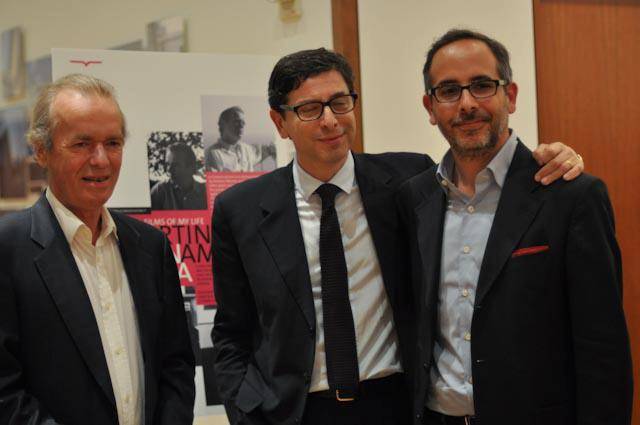
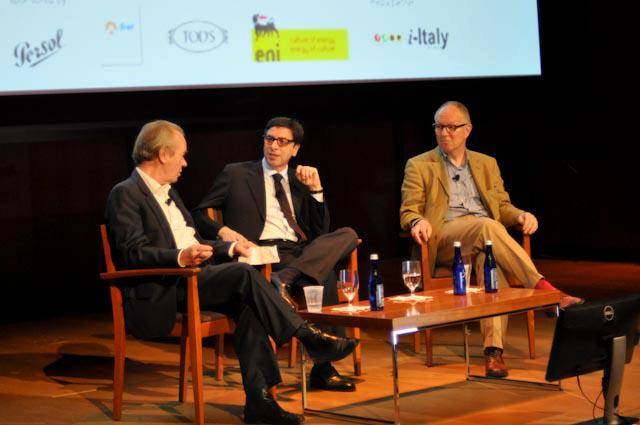
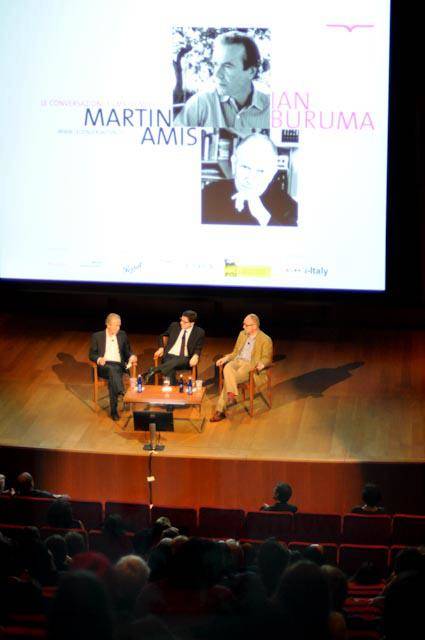
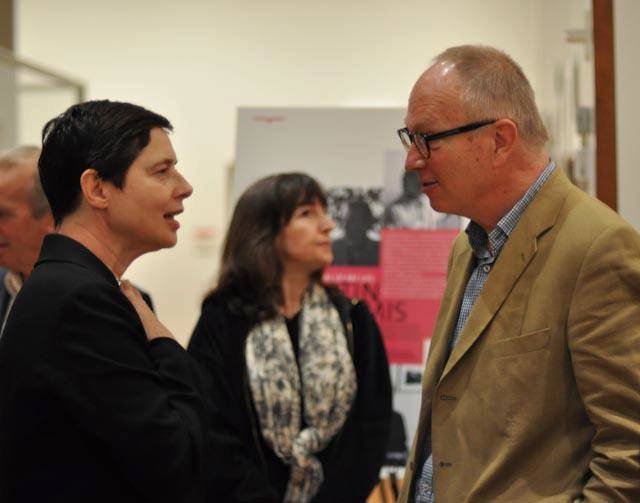
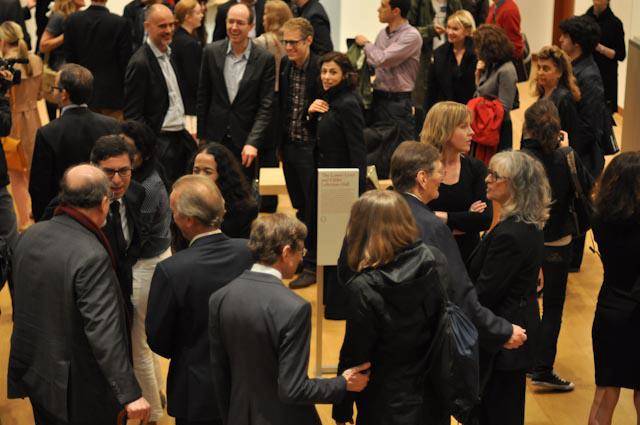
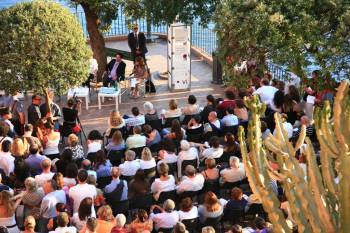



i-Italy
Facebook
Google+
This work may not be reproduced, in whole or in part, without prior written permission.
Questo lavoro non può essere riprodotto, in tutto o in parte, senza permesso scritto.